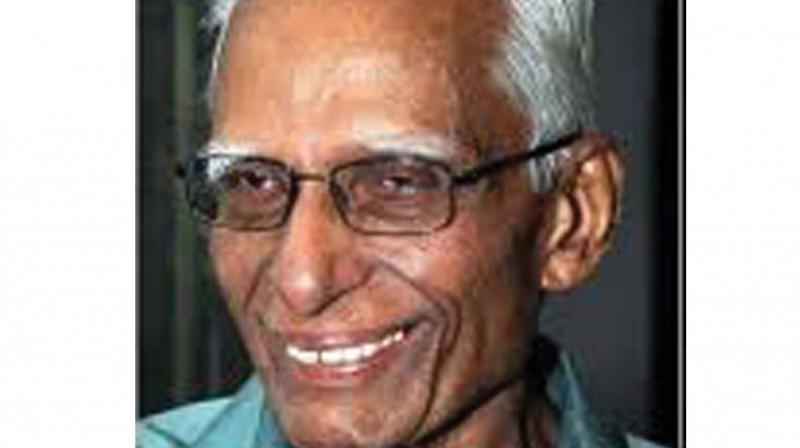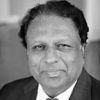KPS Menon (junior), a chip of the old block
Perhaps first foreign secretary who had wide experience, but left without recording memoirs.

I had known K.P.S. Menon (Sr) longer and better than his son, K.P.S. Menon (Jr) and so I was not surprised that the son was a chip of the old block with the same impeccable English, delightful manners, razor sharp intellect, diplomatic skills, sense of humour, integrity and humility. The son was a little bit more reticent than the father and he did not write as much. Perhaps, he was the first foreign secretary who had such wide experience, who left without recording his memoirs. I was repeatedly asked by the Association of Indian Diplomats to persuade him to recount his experiences to create an oral history of his life. But he was not amenable to do it as he did not consider what he did was worth bequeathing to posterity. Such was his humility and modesty.
K.P.S. Menon (Jr), who passed away on September 28, 2019, indeed had a brilliant diplomatic career, which took him to many worlds and many countries, which were crucial to India. China, Japan, Bangladesh, Egypt and Hungary, where he served, played an important role in the world and we had vital interests in all of them. He is one of the very few diplomats who left Delhi on the day of his retirement without looking for assignments or to taste more of the diplomatic air in Chanakyapuri. He lived in Thiruvananthapuram ever since and rarely went back to Delhi even though he had many friends and relatives in high positions there.
In Kerala, he lived in his wife’s ancestral home just opposite the Raj Bhavan, in a quiet part of Thiruvananthapuram with his devoted and charming wife, Lalitha, and his two sons, both academics, visiting him occasionally. He made his annual visits to Chennai to enjoy music and dance. He was invited to many academic and cultural events in Thiruvananthapuram but seemed to attend them more as a duty than a pleasure.
On my return to Kerala, I approached him and the only other former ambassador who settled in Thiruvananthapuram, Thomas Abraham, to start a think-tank to provide a southern perspective to foreign policy. They were very inspirational and we set up a Kerala International Centre on a shoe-string budget. Both of them, who had thought that they were too old to contribute much to international affairs, took up the work of developing an international studies centre in the city. They attended the meetings of the Centre and contributed much to it for about 10 years. Thomas Abraham later passed away and KPS became weaker and stopped coming, but both continued to inspire us to carry on with the work. It was during those 10 years that I realised the qualities of the head and heart that KPS was blessed with. As I witnessed his mortal remains go up in flames before a small number of relatives and friends, I realised that Kerala and India had lost an extraordinary citizen. I myself felt orphaned.
KPS did not speak much about the extraordinary circumstances in which he was appointed foreign secretary. I sat next to him at a conference of heads of missions on a round table and we were next to each other as he was the senior most and I was the junior most.
Our conversations were about how to adjust to retired life since he had not expected to continue in the service. But within a few days, while he was packing his bags, Rajiv Gandhi summoned him to take over as foreign secretary in place of A.P. Venkateswaran, who was sacked at a press conference by the Prime Minister. KPS was most reluctant, but he was persuaded to accept because no one would have been acceptable to the service at that time.
The IFS stood up to the PM and demanded that only the senior most officer should be appointed. He served as foreign secretary for two years, even though he had differences with Rajiv Gandhi’s policies and style.
It was destiny that made him foreign secretary, as years before, an astrologer had predicted that KPS (Sr)’s son and grandson would also be foreign secretaries. The astrologer proved right as his nephew too became foreign secretary. A dynasty of diplomats served the nation by their qualities after tough competition, not by virtue of their birth.
(The writer is director-general, Kerala International Centre, Thiruvananthapuram, and former ambassador of India)

